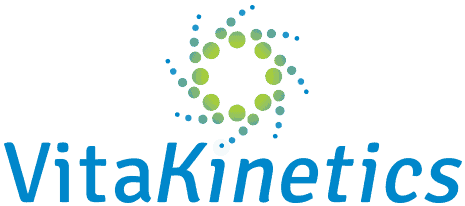Is it possible that bacteria could aid in healing from injury or surgery?
Yes. In fact it is important to promote the variety of bacteria in your gut to promote immune health, reduce pain and reduce risk of infection.
As described in an earlier post about the leaky gut syndrome, supplemental recommendations that may reduce pain and improve healing are geared to promoting gut health. Specifically, the microbiome diversity is strongly linked to gut and mental health. This gut-brain connection is at the core of much of the research around supplemental probiotics. A literature review evaluated the research around use of probiotic use and migraine headache. The findings of improving gut microbiota and reducing inflammation may have positive effects on strengthening the gut and improving brain function. This is important to surgery/injury in that gut health supports brain health which thereby will have a positive benefit in the role of the brain in the pain experience.
It is clear that decreased healthy gut bacteria is associated to intestinal problems, reduced immune function and impaired peristalsis. This deficit is also associated with leaky gut syndrome. This is important as it relates to an aberrant inflammatory response for healing. The question becomes, what are the potential benefits from supplemental probiotics for surgery?
An animal dental study showed that there was a decrease osteoclast activity in mice during orthodontic procedure when given a probiotic supplement. The osteoclast is involved in bone resorption. This indicates that probiotic supplementation influenced bone strength by reducing bone resorption during bone remodeling induced by mechanical loading without an increase in infection.
In surgery, especially total joint replacement, there is a concern for infection and seeding of infectious bacteria to the joint. A summary article reported that there was no increase in infectious complications at surgical sites during colorectal resection. Additionally the relationship of surgery which might impact stress-related hormones and antibiotics can have a detrimental effect on the gut microbiome including micronutrient insufficiency. Given this adverse response to surgical procedures, it may be beneficial to orally supplement a diverse probiotic to combat infectious bacteria, promote intestinal diversity and digestion.
Recent systematic review and meta-analysis concluded that multi-strain probiotic supplementation reduced sepsis in pre-term infants. This supports the theory that good bacteria combat bad bacteria to reduce sickness and infection.
A prospective double-blind, placebo-controlled randomized clinical trial for elderly patients with distal radius fracture showed that supplementation with probiotics significantly improved outcomes related to function (DASH scores), pain and CRPS score as well as strength and range of motion. These same authors reported that probiotic treatment has been shown to improve bone formation, bone mass density and even prevent bone loss.
Another benefit of probiotics is that is protects against intestinal permeability from inflammation induced by NSAID use. They can reduce the risk of C- diff infections as well. There has been no reported sepsis related to probiotics, yet there may be flu like symptoms, flatulence, bloating, or loose stools related to “die-off” of pathogenic bacteria.
There are no upper limits of probiotics established among children or adults. Caution is advised in supplementing probiotics in immunosuppressed individuals. Some clear guidelines are that supplementation needs to include billions of live bacteria with multiple strains to include Lactobacilli and Bifidobacterium strains. Single strain supplements are not as effective. Saccharomyces boulardii is a yeast that is good at combating yeast and C diff.
As always, there is conflicting recommendations on dosage of therapeutic dosing. Other clinical sources recommend that rebalancing microbiome after antibiotics may range for 30-100 billion CFU daily. Ulcerative colitis may require upwards of 2 trillion CFU. Either way, building up to therapeutic dosages may require a gentle progression to be aware of “die-off” reactions.
An alternative option to probiotics, with similar effect, is using very specific prebiotic dietary fiber. Prebiotic dietary fiber is food for the microbiota in the gut. Specifically, arabinogalactan is fermented by the specific healthy strains of bacteria, including Lactobacillus and Bifidobacteruium families. The arabinogalactan fiber has many health benefits including support of healthy bacteria, improved perihperal immune system and reduce neuroinflammation,
Outside of supplementation, eating whole food based probiotics is also an option. The consistency of the bacterial concentrations is up for debate and for sure less consistent. More diversity of bacteria is available for home fermentation over store bought as it can be pasteurized to kill bacteria. Whole food sources are live culture yogurt (no sugar added made with whole milk), kimchi, and sauerkraut. Regardless of supplementation these whole food sources also include the inulin fiber that is an important pre-biotic as well as probiotic. They can easily be placed on meals to add flavor.
Remove. Replace. Restore.
Remove fear of health promotion bacteria.
Replace with safe and professional supplementation of probiotics. Eat fermented vegetables and fruit.
Restore your microbiome to promote immune health, reduce pain and infection rates.
Eat Well. Move Well. Sleep Well. Connect Well. Supplement Well…..SOAR INTO HEALING.
References:
Potential Beneficial Effects of Probiotics on Human Migraine Headache: A Literature Review.
Probiotic consumption decrease the number of osteoclasts during orthodontic movement in mice.
Gut Microbiome , Surgical Complications and Probiotics
Probiotics Prevent Late-Onset Sepsis in Human Milk-Fed, Very Low Birth Weight Preterm Infants: Systematic Review and Meta-Analysis
The effect of probiotic treatment on elderly patients with distal radius fracture: a prospective double-blind, placebo-controlled randomised clinical trial.
Herb, Nutrient and Drug Interactions
Digestive Wellness: Strengthen the Immune System and Prevent Disease Through Healthy Digestion

